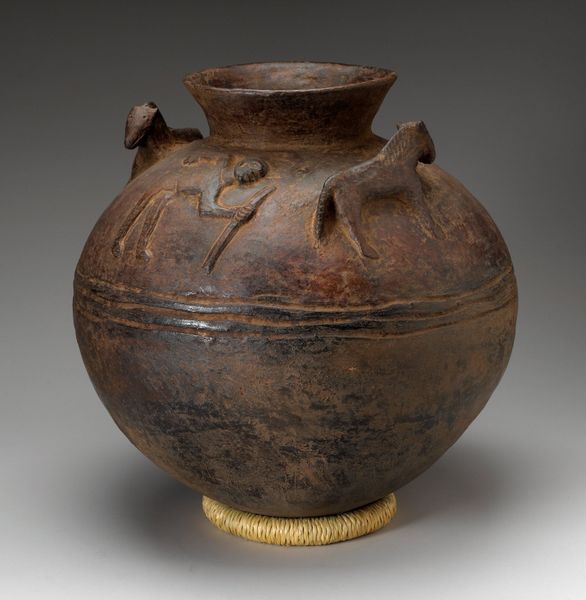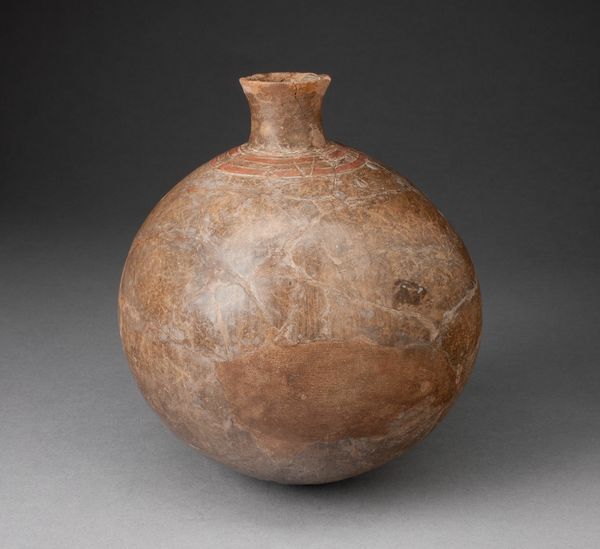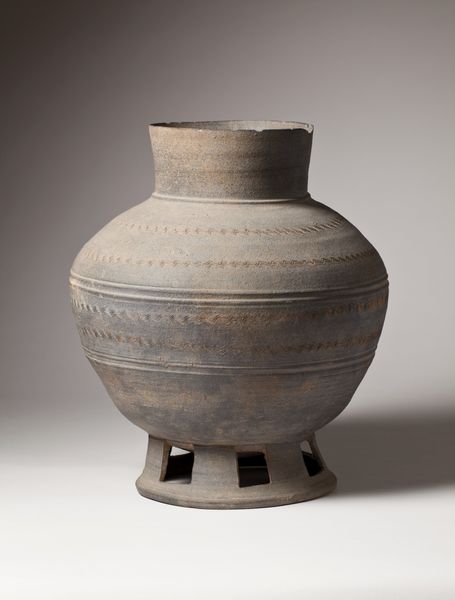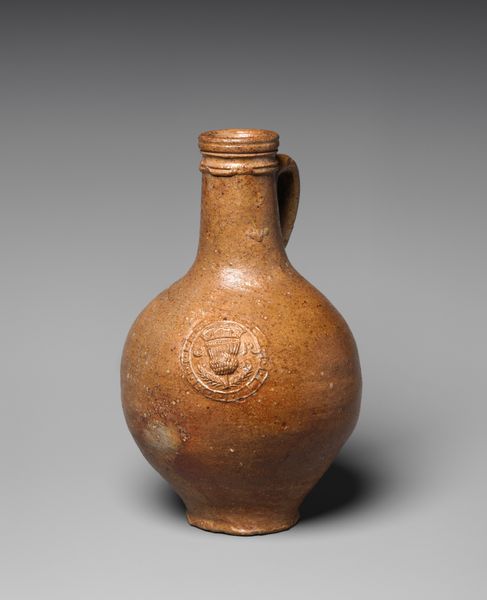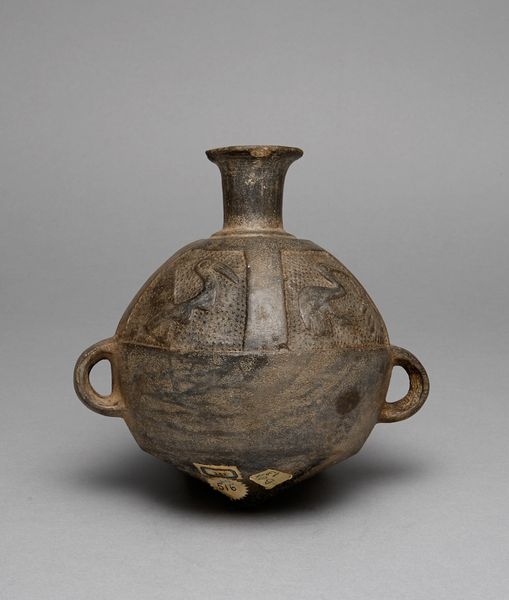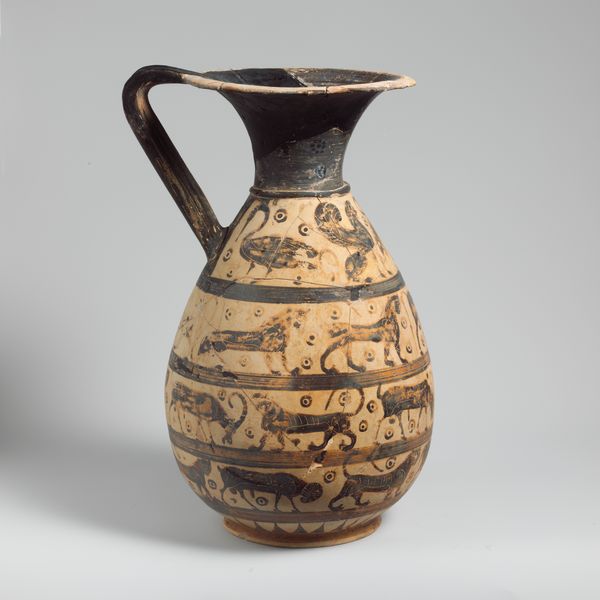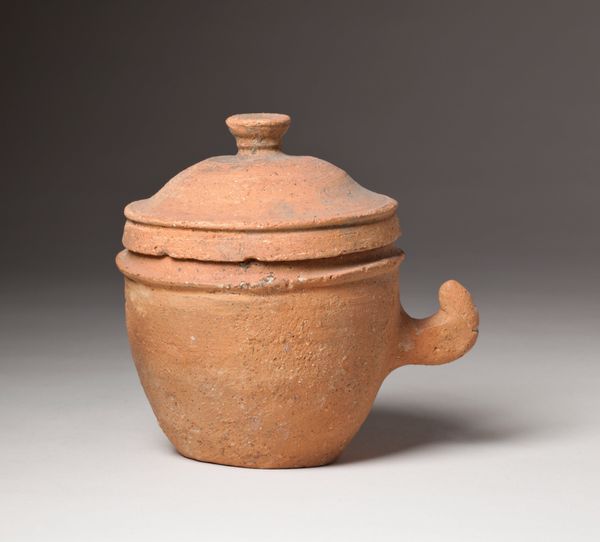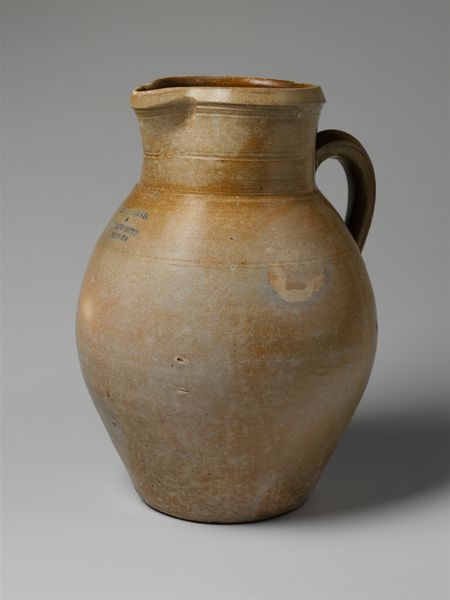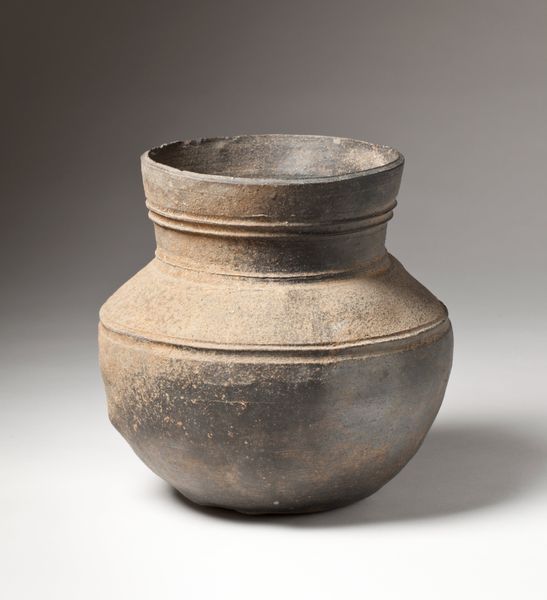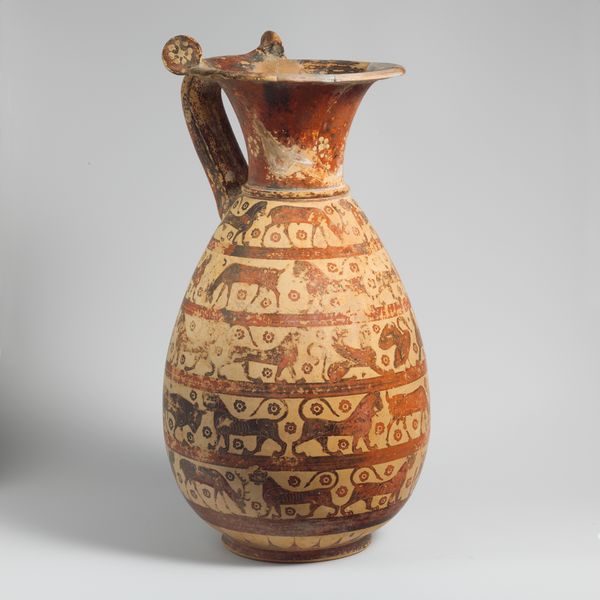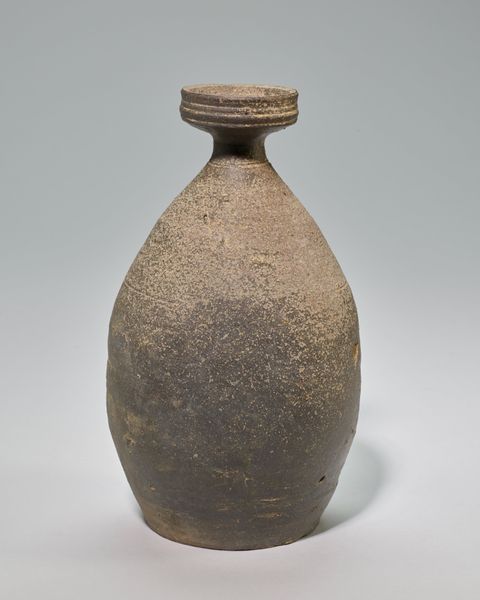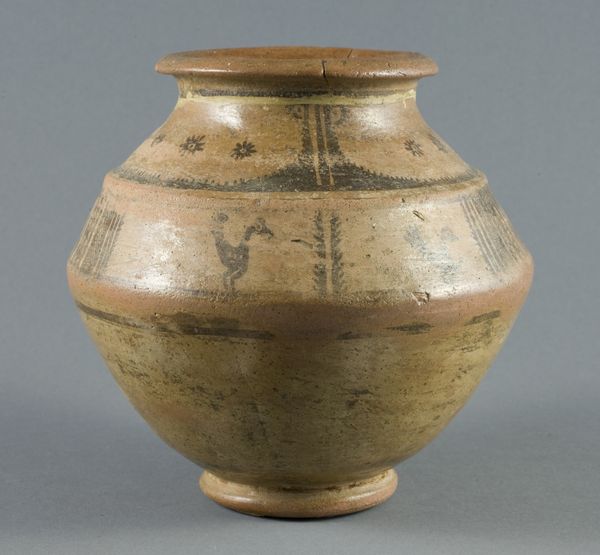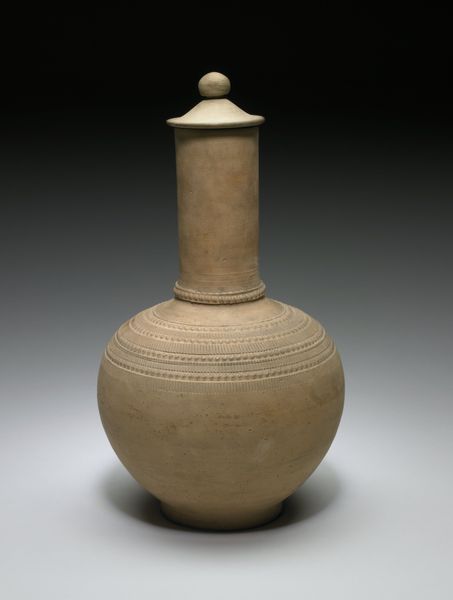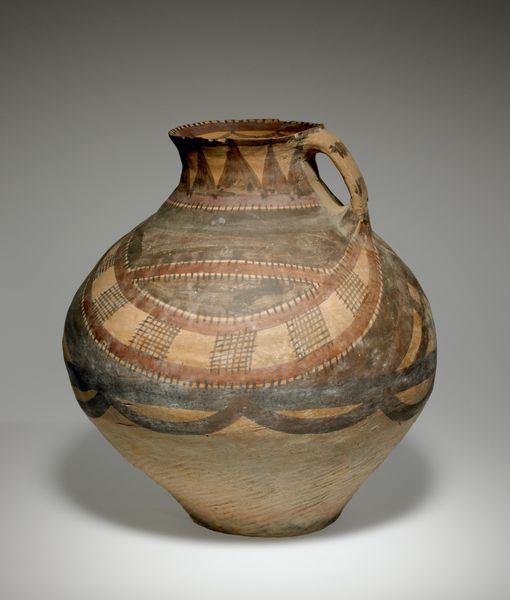
ceramic, sculpture
#
ceramic
#
figuration
#
ancient-mediterranean
#
sculpture
#
ceramic
Dimensions: 9-1/4 x 11-3/8 x 10-1/8 in. (23.5 x 28.9 x 25.7 cm)
Copyright: Public Domain
This earthenware kendi, or spouted water vessel, was made by an anonymous artist. Because kendi vessels were made across a wide geographical area that stretched from Southeast Asia to Africa and were used for centuries, it is difficult to say when and where exactly this particular kendi was produced. The kendi’s physical characteristics may offer a clue. The shape of the kendi—its round belly, spout, and long, narrow neck—was influenced by the shape of the coconut. The colors and materials used were also regionally relevant, using readily available clay and minimal ornamentation. This particular kendi resembles earthenware made in the rural areas of Southeast Asia where it was a common household item. While the kendi’s modest materials and form may not immediately suggest high social status, it played an important role in ritual practice, most notably the ritual cleansing of hands before prayer, and the pouring of water as an act of merit. Studying the production and use of objects such as the kendi helps us gain a better understanding of social and cultural practices across the world.
Comments
minneapolisinstituteofart about 2 years ago
⋮
This seemingly simple, finely potted kendi (derived from the Sanskrit for waterpot) marks a critical juncture in the broader history of Southeast Asia. The bulbous vessel form is of Indian origin, the result of Indian traders who settled throughout Southeast Asia—a place known as the “Land of Gold” in the 100s–400s CE. With them came Brahman (Hindu) and Buddhist priests, who over time integrated themselves into local power structures, yielding new models of regional statehood with elaborate religious underpinnings. This unglazed vessel—whose form would become ubiquitous in Southeast Asia—was produced just prior to the Khmer Empire (802–1437 CE), a powerful kingdom responsible for many works in this gallery.
Join the conversation
Join millions of artists and users on Artera today and experience the ultimate creative platform.
